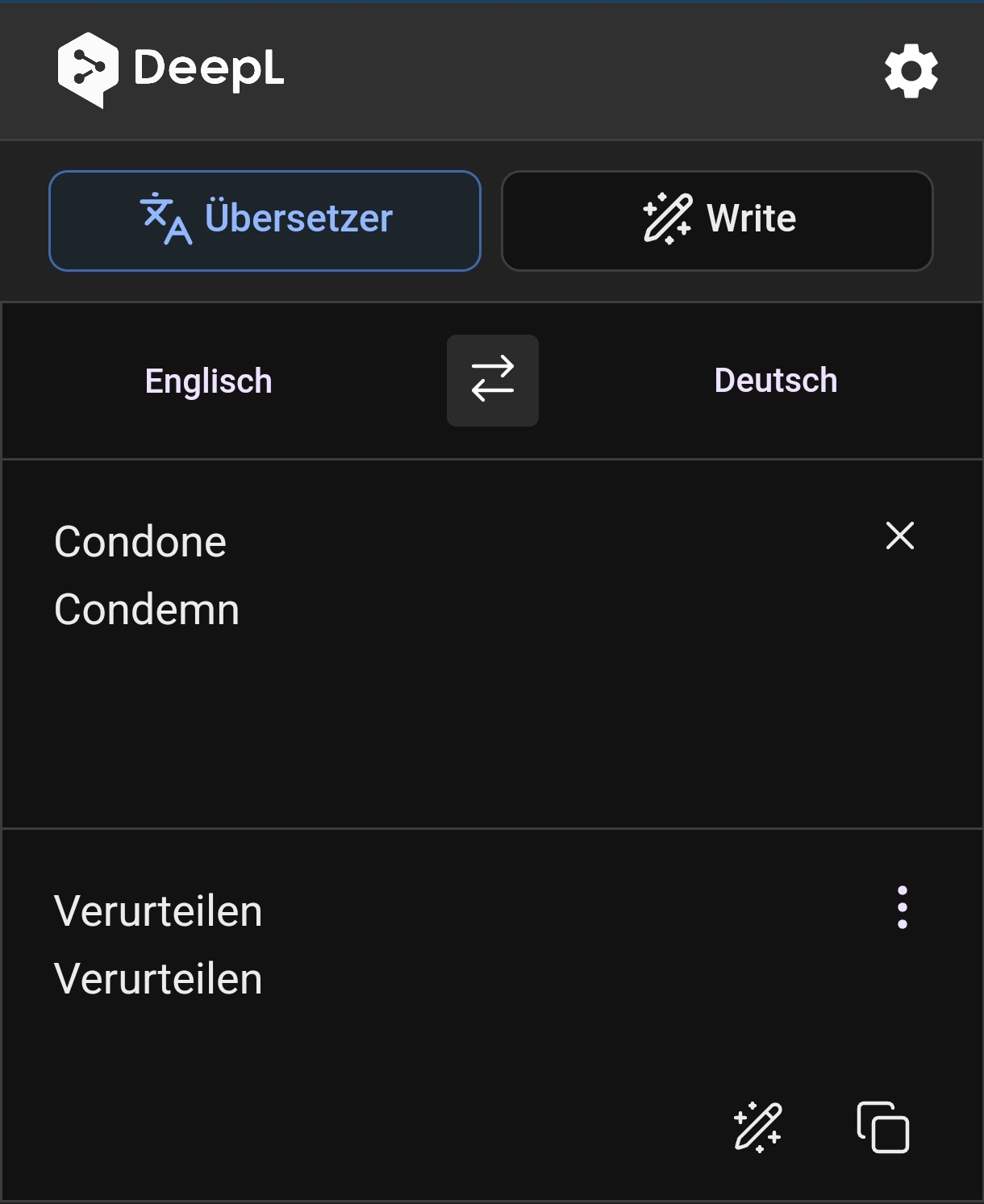Well, it clearly isn’t finding Truth.
- 0 Posts
- 16 Comments
This old blog post summarises a lot of pain points: https://d-shoot.net/kagi.html
Similar to Brave (and more recently Proton) I simply can’t trust them, despite liking the idea of their respective services.
It was okay while I was using it. Just a bit pricey. But I stopped using it when they started the whole “EUs GDPR doesn’t apply to us” non-sense. Simply not a company I can trust to handle personal data properly.

 1·18 days ago
1·18 days agoGood catch, thought of the wrong translation apparently. To be fair, even deepl was confused.


 154·18 days ago
154·18 days agoI condemn burning books in general. But I disagree that this should be punished. Yeah, people feel strongly about the qur’an. Others feel strongly about the bible and others feel strongly about Harry Potter. Just because it has some sentimental value to some as long as it is his own copy I don’t see an issue.

 7·21 days ago
7·21 days agoHonestly, I am surprised that Nexus Mods hasn’t started a tracker yet.
I would love to see these games on GOG. As of now a lot of the can be found on the high seas alone, sadly. (Looking at Black&White there)
transphobia
The what now😐
Totally possible:
Beszel. Probably the easiest tool of all the mentioned in this thread.
That being said if youre looking for performance, the last thing you’d want is open source nvidia drivers; theyre built entirely off reverse engineering, which takes time.
Pretty sure that is not true anymore since a couple of years. Only newer cards can capitalise the gains from the ‘official’ open drivers though.
https://developer.nvidia.com/blog/nvidia-transitions-fully-towards-open-source-gpu-kernel-modules/
Depends on what you want to play. If you want to play current games with current hardware then current kernel and drivers help a lot. A base Debian would (if it even works) probably less FPS than an current gaming distro.

 22·1 month ago
22·1 month agoA working nitter instance?!

 1·1 month ago
1·1 month agodeleted by creator
Oracle Cloud is the bane of my existence. You login to get to another login mask, which uses a different login. Usually one of the logins forces you to change the password, as I rarely login. And I am probably stupid with it, but it seems that even when you just changed your password, it may not work, while the previous one still does. Basically every time I login I try myself through 5-6 passwords to find the currently working ones. And then you are typically in the wrong data center and changing it may force you go login again. Overall a horrible experience, I would recommend to no one.

 0·2 months ago
0·2 months agoFirst: IANAL, EU law is complicated. This is my understanding as of now:
TL;DR: The EU Cyber Resilience Act (CRA) aims to enhance cybersecurity standards for products with digital elements. It introduces mandatory requirements for manufacturers and retailers to ensure cybersecurity throughout a product’s lifecycle. The CRA excludes open-source software developers unless their software is used commercially as part of a “product with digital elements”.
would lemmy be regulated by CRA?
Lemmy, as an open-source project, would likely not be directly regulated by the CRA. The Act specifically excludes open-source developers from its scope unless their software is used commercially.
Whaz about lemmy instances?
Lemmy instances might be regulated by the CRA if they are operated commercially as part of a “product with digital Elements”. (Is there a pay for access instance or hosting as a service for lemmy? I am not aware of one.) However, since most instances are run non-commercially or for personal use, they would likely fall outside the CRA’s scope.
Is there a difference if there is a fee or a recurrent donations?
Yes:
- A fee is typically a mandatory payment for a service or product, e.g. a feature locked behind a paywall.
- A recurring donation is a voluntary, regular contribution to support an organization or cause, often without receiving goods or services in return.
The key distinction lies in the obligation attached to the payment. Fees come with an expectation of receiving something in return, while donations are given freely without such expectations.



So much this. Claiming modern music is all bad or something has the same energy as